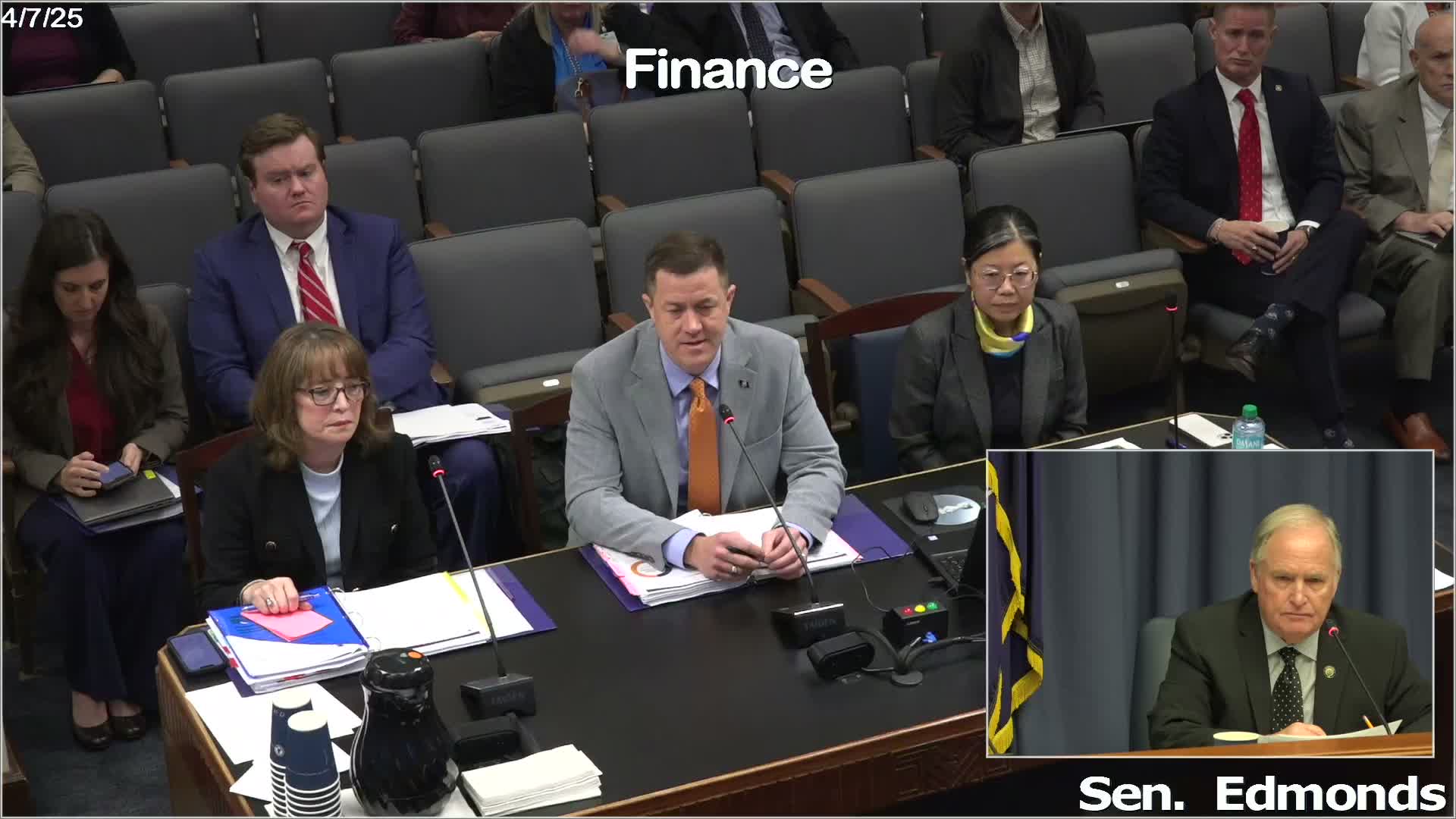Article not found
This article is no longer available. But don't worry—we've gathered other articles that discuss the same topic.
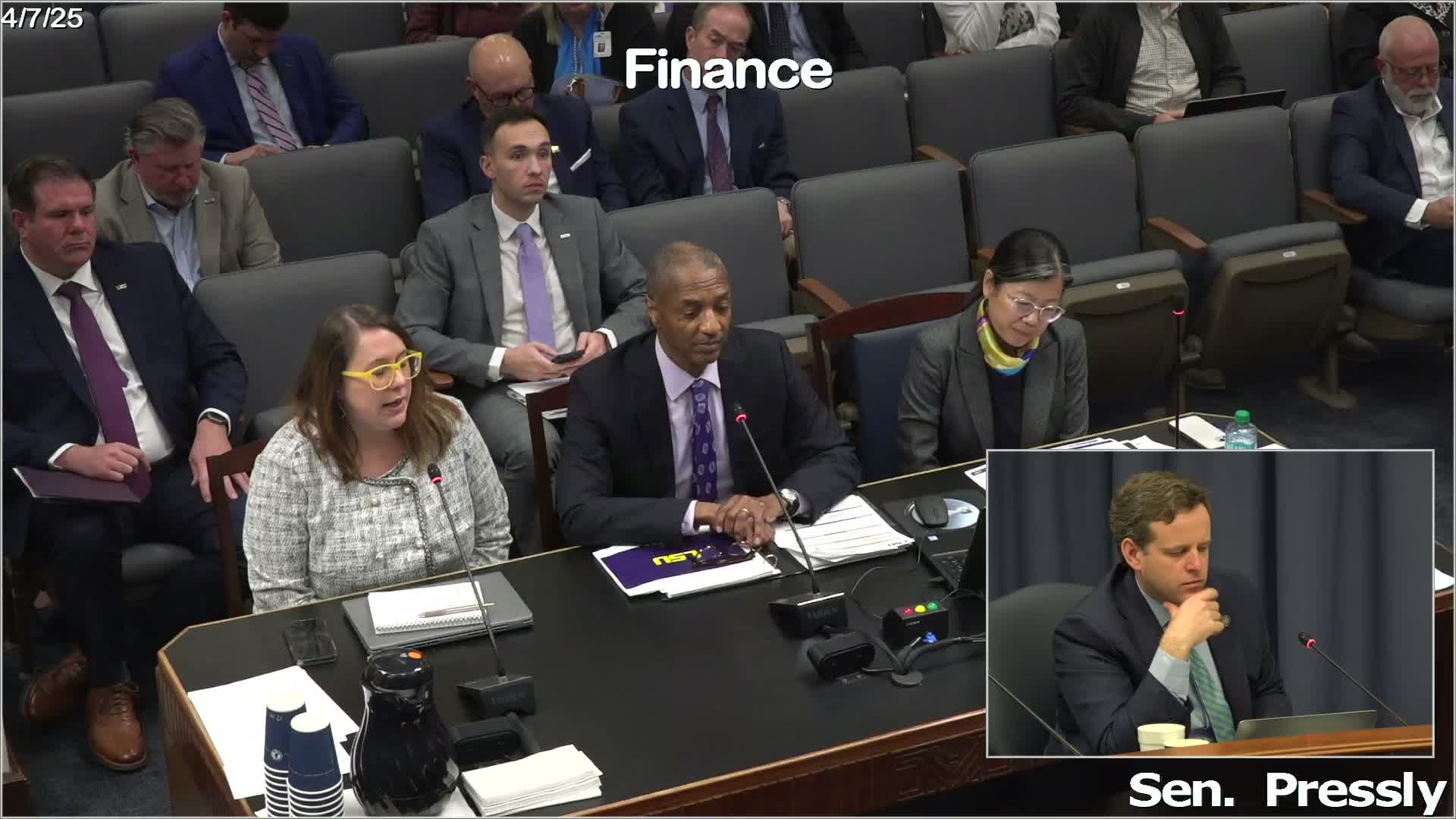
State public broadcasting tells Finance Committee of lost federal grants, warns gap in emergency broadcast investments
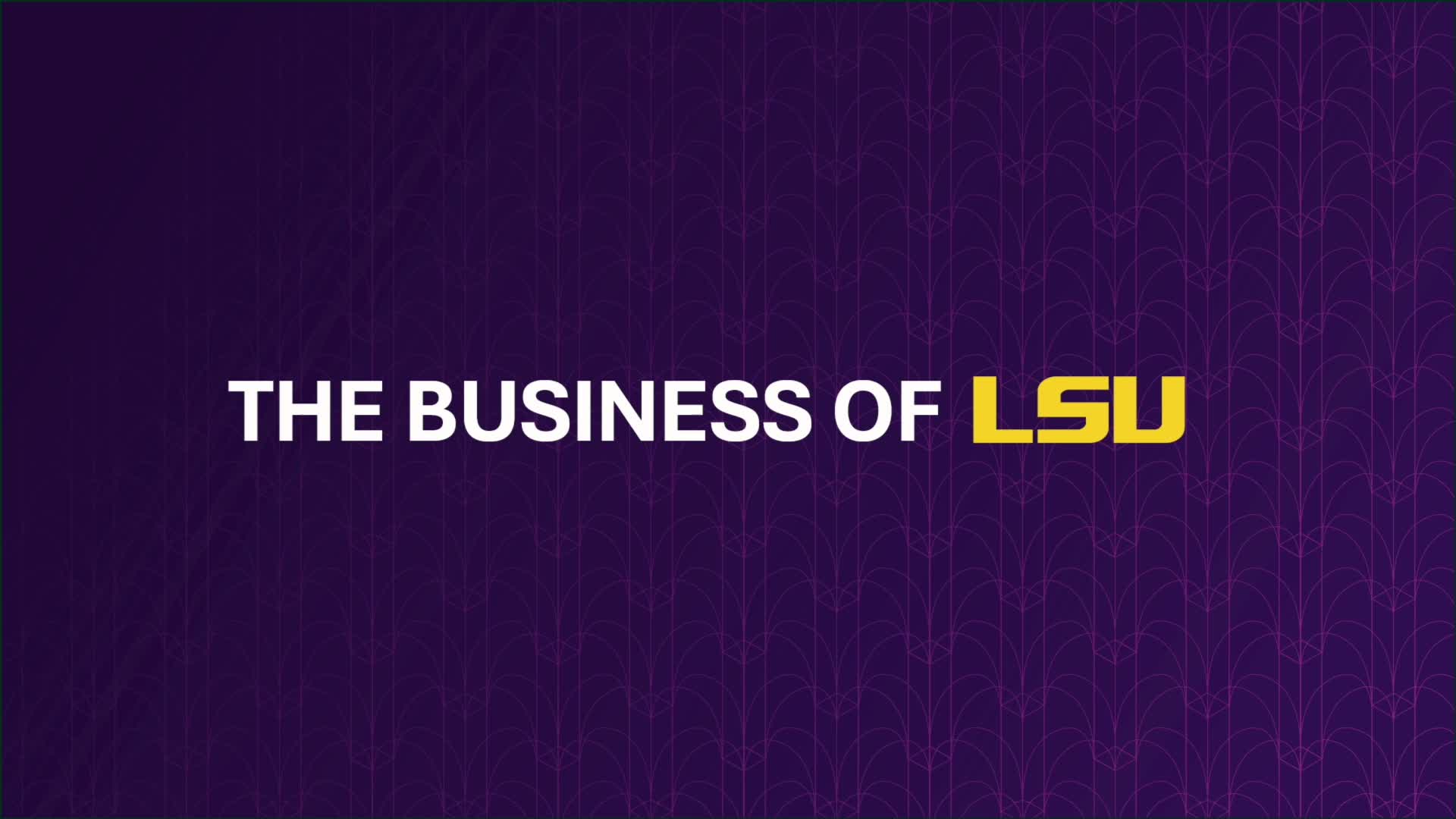
LSU leaders warn committee of federal grant uncertainty, urge state backing for Pennington and research capacity
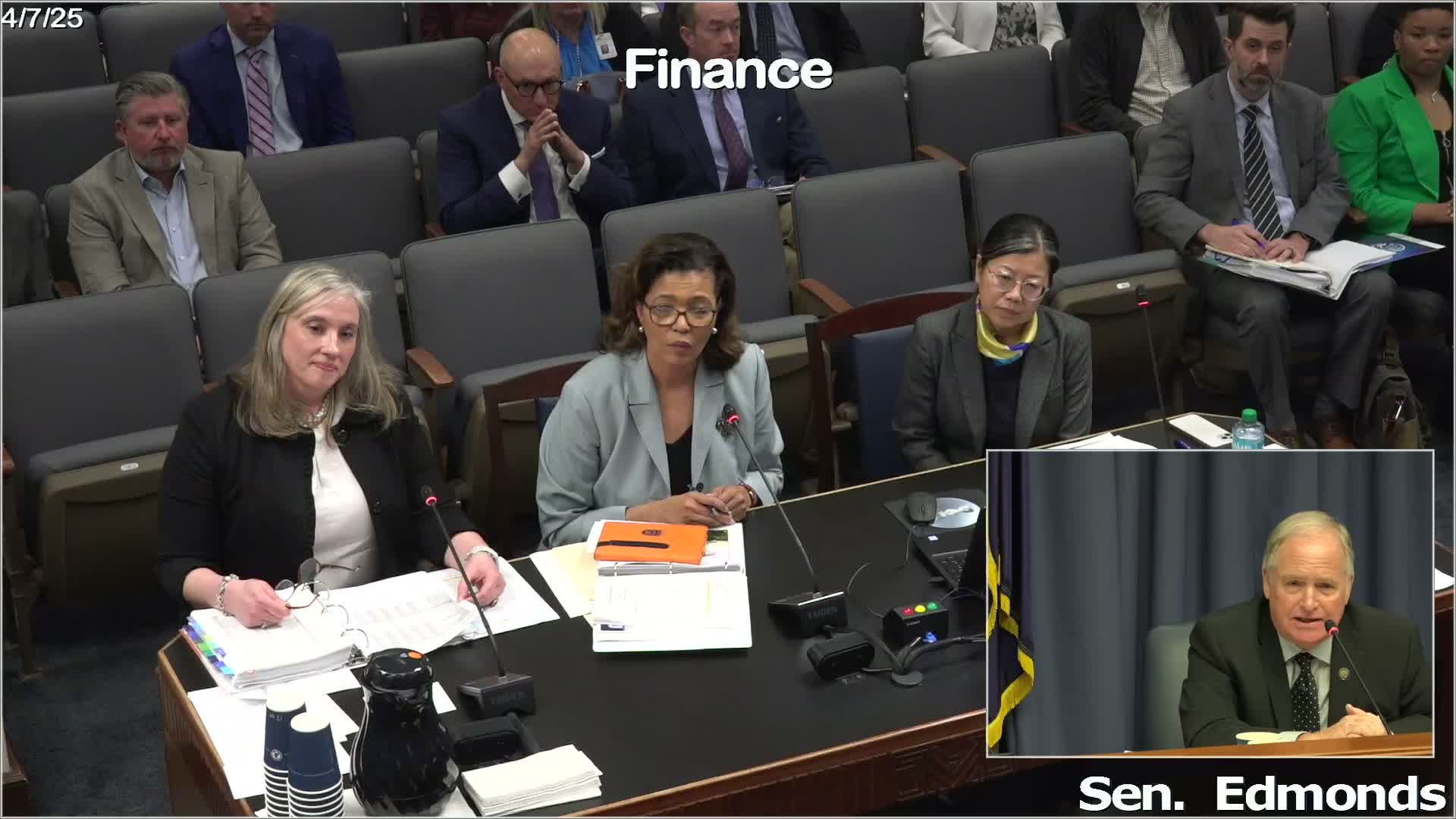
Board of Regents, higher‑education leaders press for deferred maintenance, workforce scholarships and capacity funding
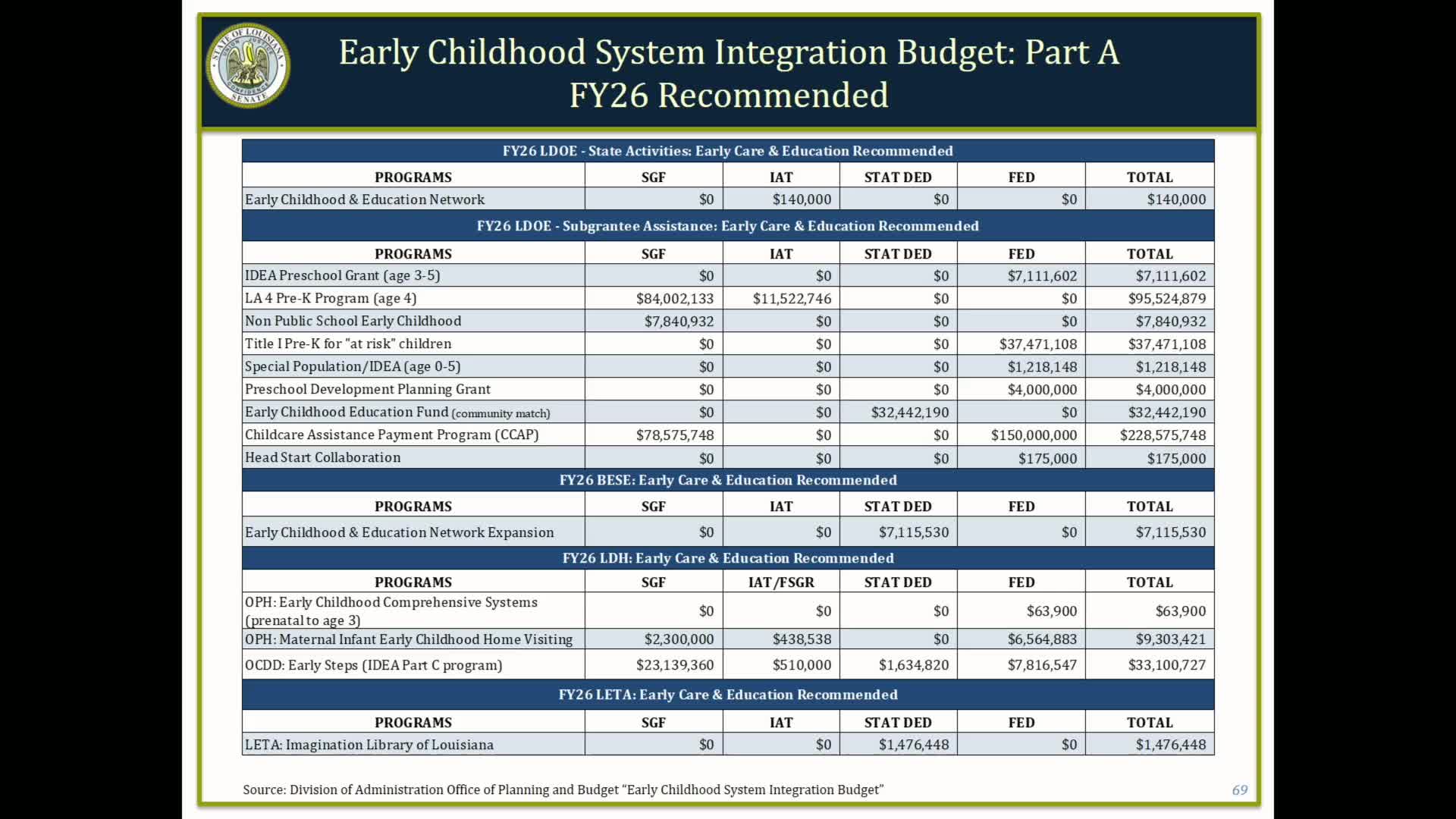
Committee briefed on early‑childhood funding, enrollment declines tied to federal drawdown
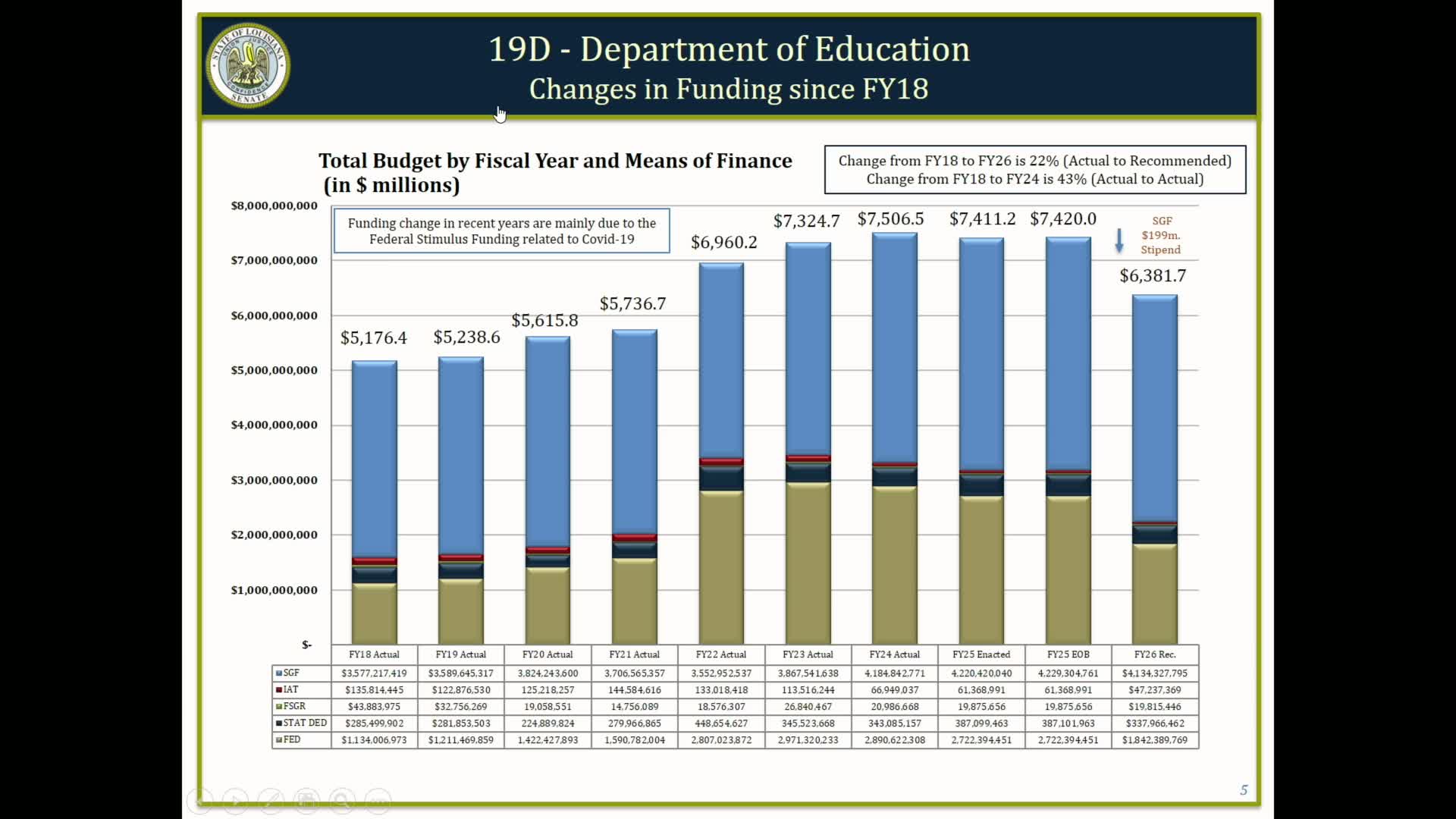
Senate finance receives FY26 education budget briefing; minimum foundation program remains largest line item
